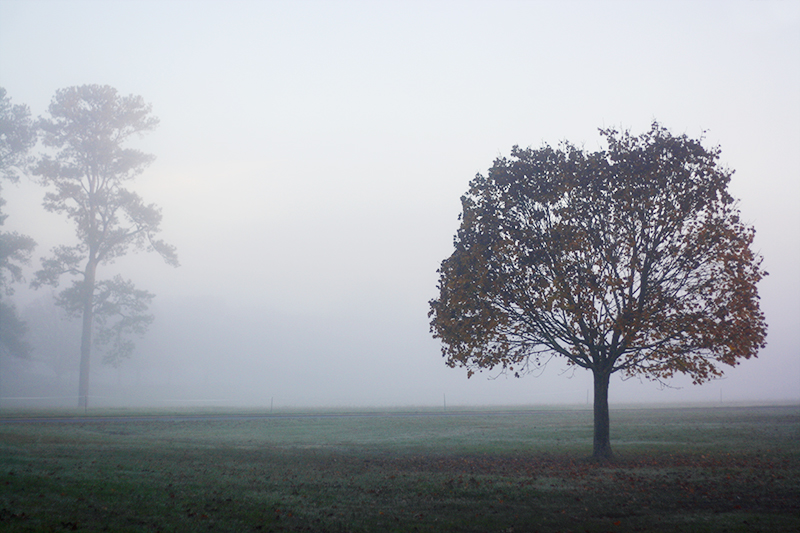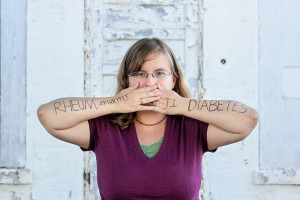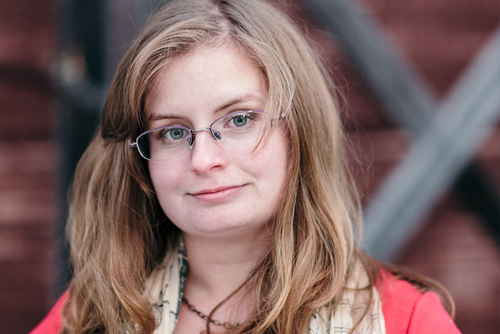I originally wrote this for Nearly Christian, after reading the challenging post Easy Like Sunday Morning. I’ve been sitting on it for a few months now, but as NC hasn’t updated recently I figured I would go ahead and share it here.
On that cold fall night, I decided enough was enough. It was time to have it out with God.
I had just seen a Christian film that touched on grief and emphasized healing. The message (like most Christian media) was uplifting, but I left feeling deeply disturbed.
Have you ever noticed that in Christian fiction, everyone gets their answers by the time the credits roll? Everyone has received peace and healing and probably some minor miracle or other has happened by the end. Because what other arc of trauma is there?
Definitely not an arc that isn’t an arc at all, but more a never ending squiggle of ups and downs and kidnappings and abuse and diseases that don’t go away.
I drove to a field on my campus because fields were great places to pray at summer camp back in high school, so I thought, What the heck, let’s try that. The building lights bleached out the stars so I couldn’t see them.
I had it out.
I talked until I screamed until I sobbed until I gagged. I had it out.
And all the while, twenty years of Sunday School and Youth Group and sermons played a reel of judgment through my head. How dare I raise my voice to God? How dare I beat my hands against the wheel pretending it was His face? How dare I do ought but meekly bow my head, accept my lot, and await healing?
If I had more faith, this wouldn’t have happened. If I had more faith, it would go away. God doesn’t give diseases to the good. God doesn’t place the holy’s loved ones in war zones.
“I used to think my testimony was boring because nothing dramatic happened to me,” a youth leader once told my Bible study group. “Then I realized that God was protecting me all along!”
I was fifteen at the time and already held secret wounds in my heart. I remember the tear in me as I glanced across the room at one of the new girls. I knew that as a child, she had been raped. I knew because she had confided in me, her hands trembling and her face too old for a teenager’s. When the youth leader stopped talking, the girl met my eyes, hers red, and I could read her expression like a thought that was my own: “Why didn’t He protect me?”
In my car by the field, with my own wounds grown by five years, I dug my fingernails into my head and forced my mouth to keep working, to drown out the Sunday School answers. I forced myself to do something the church had never taught me to do.
I forced myself to grieve.
Not shush. Not comfort. Not quiet. To grieve like Job, with questions and rage and pain.
Over the years, a lot of people have tried to put me together. I’ve had my hands anointed. People have prayed for my healing. Some of them prayed with my permission. Some of them didn’t ask.
I’m not a natural cynic because I believe in the power of rawness. When people act, I often assume their actions are intended with honest feeling, and I try to accept their gestures even if I don’t understand them, or don’t want them. But the best intentions can still leave a scar, a message seared into your soul: It isn’t right for you to be (or feel) broken.
When you tell someone you’re broken, it’s often interpreted as a request to be fixed. It’s natural. I do it to other people. I let other people do it to me.
But brokenness is not a symptom of God’s absence, and sometimes (most of the time) even in the grief you know it. Sometimes that’s what makes the grief terrible.
So when I tell you terrorists tried to kill my sister, I don’t need you to put your arms around me and say, “Stop worrying! God will watch out for her.”
And when I tell you I have rheumatoid arthritis, I don’t need you to say, “I’ll pray you’re cured.”
I don’t want to measure God by the good and bad things that have happened (will happen) in my life. Maybe it’s because I don’t want to see how the scale falls. Maybe it’s my own unbelief.
But is it right to define His goodness by our health (when others are sick), or our safety (when others are in danger), or our so-called protection (when others are raped)?
Testimonies are always told after an arc (your so-called journey to Christ) reaches an artificial ending (speaking a prayer, getting baptized). That’s how they are framed, but it isn’t true of life. Or it isn’t true of my life, anyway.
After I left the field, I didn’t rise from my car cured of my rheumatoid arthritis. My loved ones were not restored to me. My innocence wasn’t repaired.
But my grief was out in the open. The last pretense of Okay, shrouded in Sunday School clichés and smothered by a culture that does not allow brokenness, had been ripped away. Now both He and I knew how it stood.
Some days (dare I say, some lives?), God does not choose to heal. At least, not in the normal way. I am the evidence.
I can live with my brokenness. Sometimes I think it’s the church that can’t handle it.
My testimony will have ups and downs, but no neat arc. I am permanently broken.
But I am not destroyed.
(And I’m okay with that type of healing. The type that does not protect or undo, but that carries on.)
















